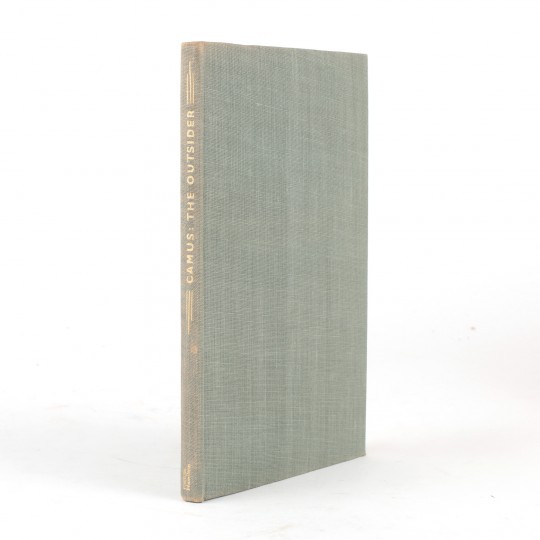


So when his mother dies and he is unmoved, he refuses to do the proper thing and grieve. Daoud’s novel reminds us that there are no final answers telling us how to live in solidarity with others and that we must do so all the same.Meursault is different. He thus joins Meursault as an unworthy prophet who proclaims the absurd while surrounded by people who flee from it-and proclaiming the absurd can be a gesture of solidarity when one speaks for others, as Haroun speaks for his brother Moussa. Haroun has, however, a greater understanding of solidarity than his fellows: he at least recognizes that murder is significant. He justly criticizes Meursault for privileging his confrontation with the absurd over the death of the Arab he did not even name, but Haroun too has killed. After recalling Camus’s discussion of the absurd in Le Mythe de Sisyphe and of solidarity in L’Homme révolté, the article examines the manner in which Haroun, Daoud’s narrator and the brother of the Arab Meursault killed in L’Étranger, reveals his own failures of solidarity. This article examines Kamel Daoud’s treatment of solidarity and the absurd in Meursault, contre-enquête and posits that the question of how to live in solidarity with others is central to the novel, although the word ‘solidarity’ never appears in it. The work desires to address the main problem in three ways: firstly, to discuss Camus' philosophy of affirmation secondly, to elucidate his notion of love by extracting its meaning from The First Man and thirdly, to bridge the two by attempting to articulate the role that the notion of love plays in the development of his philosophy of affirmation via the articulation of the close connection of Camus' political intentions and activities to his philosophical thoughts.

It will make use of the triads included in Camus' projected works – finished and unfinished – in extracting the meaning of love and in proving that love has a vital role in his philosophy. The main aim of this research project therefore is to expose Camus' notion of love and prove its significance to his philosophy of affirmation.

This work was supposed to be part of the third phase of Camus' works which would purportedly discuss love. When Camus died on January 4, 1960, a draft of an autobiographical work entitled Le Premiere Homme (The First Man), was found inside his suitcase. Love, however, was left unexpressed due to Camus' untimely death. Negation found its expression in The Myth of Sisyphus, The Stranger and Caligula while affirmation was conveyed in The Rebel, The Plague, and The State of Siege. Albert Camus sought to envision his works to express negation, affirmation, and love in a progressive manner.


 0 kommentar(er)
0 kommentar(er)
